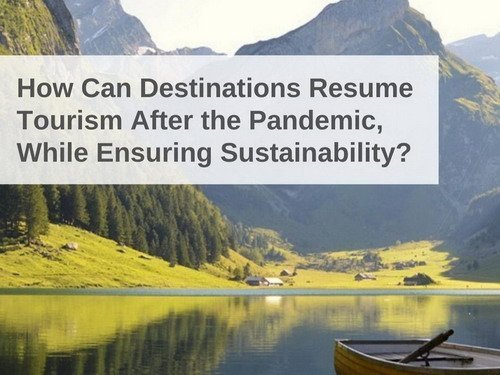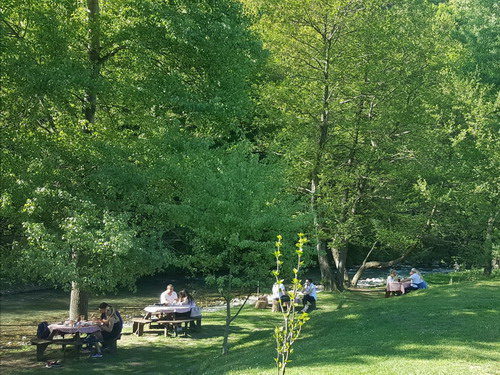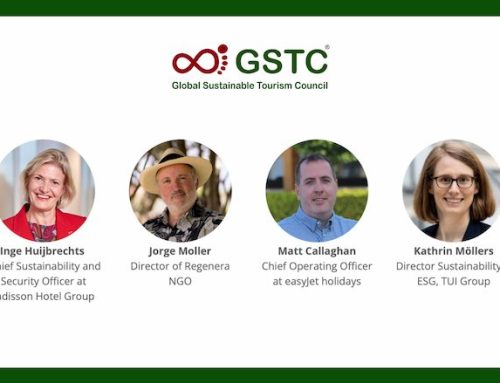Destination Stewardship Report
Autumn 2020 October-December (Volume 1, Issue 2)
The Destination Stewardship Report is an e-quarterly collaboration between the Destination Stewardship Center and Global Sustainable Tourism Council, and in time maybe others. Our goal is to provide practical information and insights useful to anyone whose work or interests involve improving destination stewardship in a post-pandemic world. It’s an all-volunteer experiment, so its success will depend on your interest, feedback, and content contributions. Join us, and help each other.
Please subscribe HERE if you have not done so already. For more information and participation contact us. — Jonathan Tourtellot, Editor
The Greening of Gritty Ulsan, South Korea
Ulsan, industrial powerhouse of South Korea, wasn’t known for its ecotourism opportunities. Indeed, the city was planning to clear-cut its riparian bamboo forest until local residents and NGOs stepped in. Dr. Mihee Kang and Seok Yoon explain what happened next, including the key role played by a pro-green national government.
A city known for its heavy industry has transformed itself in part with an ecotourism approach. In the 1980s, pollution so bad that the city’s central Taehwa River became known as the “River of Death.” READ MORE →
10 Ways to Reset Your Tourism Model Post-Covid
For destinations, going back to business as it was before Covid-19 will be difficult and often not advisable, yet most destinations seem to be trying to do just that. Now Florian Kaefer, editor of The Place Brand Observer, presents a new, free, multi-expert White Paper on how your community, government, or DMO can do a tourism reset. Here’s how to get started.
For a More Robust Recovery
At The Place Brand Observer (in partnership with the Sustainability Leaders Project) we have published a white paper to help you future-proof your destination – city or region. We asked leading consultants, managers and researchers to share their suggestions READ MORE →
Pandemic Tourism Brings Surprises to Serbia
With borders closed by Covid this past summer, Serbians accustomed to coastal-resort holidays instead toured inside their own country. Ivana Damnjanović reports on the mixed impact on rural destinations when tourists accustomed to one style of travel must adapt to another. The result: Some lessons for the future.
Profitable But Unpracticed Tourists
“Welcome out here to our contamination zone,” my hosts say, jokingly alluding to the name I attributed to Serbian destinations swarming with tourists in the midst of the new peak of coronavirus. It is almost unimaginable that READ MORE →
The Search for Holistic Destination Management
In our last issue, we discussed the importance of GSTC Destination Criterion A1, which reads in part: “The destination has an effective organization, department, group, or committee responsible for a coordinated approach to sustainable tourism, . . . for the management of environmental, economic, social, and cultural issues.” The requirement seems obvious, yet surprisingly few places around the world come even remotely close to meeting it. Below is Jacqueline Harper’s profile of one that does, fourth in a series being assembled by the Destination Stewardship Center.
Doing It Better: Columbia Gorge Tourism Alliance, Oregon and Washington States, USA
Mallorca Tries to Tame Tourism
Among notoriously overtouristed destinations, Spain’s island of Mallorca is striving, if half-heartedly, for a sustainable-tourism reset once the pandemic recedes. Daza Garcia reports that right now, their chances of avoiding errors of the past are encouraging but far from certain.
“If you are stunned by the noises that civility entails, … follow me to an island that I will tell you, to an island where there is always calm, where men are never in a hurry, where women never get old, where they don’t waste themselves not even words, where the sun stays longer and Mrs. Moon walks more slowly, infected by laziness.”
– Santiago Rusiñol, Spanish painter and writer (1922).
That was Mallorca in 1922. Largest of the Balearic Islands, which lie in the eastern part of the Spanish Mediterranean, Mallorca has become READ MORE→
How Data Science Can Help Destinations
Sustainable destination planning is frequently hobbled by conventional measures of return on investment. But if ROI is expanded by using data science to include tangible but often omitted factors at both company and destination levels, says Irene Lane, then the picture is more accurate – and brighter.
Before COVID hit, destination stakeholders were concerned about the social, economic, and environmental impact of overtourism at their locales. On the one hand, tourists eagerly flocked READ MORE →
Future of Tourism Coalition Update
As of October, more than 300 companies, agencies, and organizations have endorsed the Coalition’s 13 Guiding Principles. Through questionnaires and focus groups, the Coalition has now an initial analysis of what the signatory community wants, as reported here.
Formed earlier this year, the Future of Tourism Coalition is a collaborative effort to chart a new, more sustainable direction for tourism and shift the status quo. The Coalition is pursuing a shared global mission: to place destination needs at the center of tourism’s new future. Through commitment to their Guiding Principles, the greater travel industry and destination agencies can align around a path forward for a more sustainable future for tourism.
Coalition members include: the Destination Stewardship Center, the Center for Responsible Travel (CREST), Green Destinations, Sustainable Travel International, Tourism Cares, and the Travel Foundation, with the Global Sustainable Tourism Council as advisor.
Using the GSTC Criteria as a minimum starting point, the Guiding Principles are intended to help destinations sidestep the excesses of the past and put tourism on a renewal course. You can contact the Coalition here, and read more on the DSC blog page.
Destination Monitor
- How Tourism Can Help Protect Biodiversity | WTM (video)
- CEO: Airbnb Has Lost Its Way | MPAmagazine
Admirable, but will Chesky fix it? - Thailand Moves To Save Coral Reefs | Bangkok Post
- After the Hiatus, « Regenerative Travel »? | NY Times
- 3 Africans Discuss « Conservation Hunting » | Into the Wild podcast
Local points of view, too rarely heard. - Voluntourism After Covid-19 | World Economic Forum
- Kyoto Tempted to Rethink Tourism | WSJ
- Call for a Visitor Tax in Wales | Cambrian News
➢ DSC’s Destination Monitor and Travindy offer continuing selections of news stories.
Submissions Requested
The Destination Stewardship Report relies entirely on submitted articles and notices, not to mention corrections and suggestions. All submissions must: • pertain to some aspect of destination stewardship; • be shorter than 1,000 words, and; • avoid self-promotion. Photos welcome. What story can you tell that would help others?
Please contact us with your ideas. Your next issue is planned for January 2021.
Notices
Webinars
- Green Destinations is organizing a cluster of webinars to replace Global Green Destinations Days 2020, 6-8 October
- AIANTA: Geotourism and Tribal Tourism along the Lewis and Clark National Historic Trail (USA) 6 October 2020
- Online course “Sustainable Tourism for Small Island Developing States,” 7 weeks starting 12 October. Register free.
- Upcoming GSTC members-only webinars include Albert Salman’s Good practices and opportunities for destination managers in times of Covid19, in Asian and American time zones, 28-29 October
Events, online, in person, or mixed
- Forum Turistic, Towards New Models of Tourism, Barcelona, 13 October, live and streaming
- Travel Unity Virtual DEI Summit, 21-23 October
- A World for Travel, Evora Forum, Evora, Portugal, 5-6 November
- Digital Tourism’s Think Tank, X Festival, 30 Nov.-4 Dec.
- GSTC’s 2020 Global Sustainable Tourism Conference in Kelowna, British Columbia, Canada, is postponed to October 2021.
Publications
- Case for Responsible Travel 2020 (CREST), pdf.
Sponsored by:


Editor – Jonathan B. Tourtellot
Newsletter design and production – Sarah Bacharach









